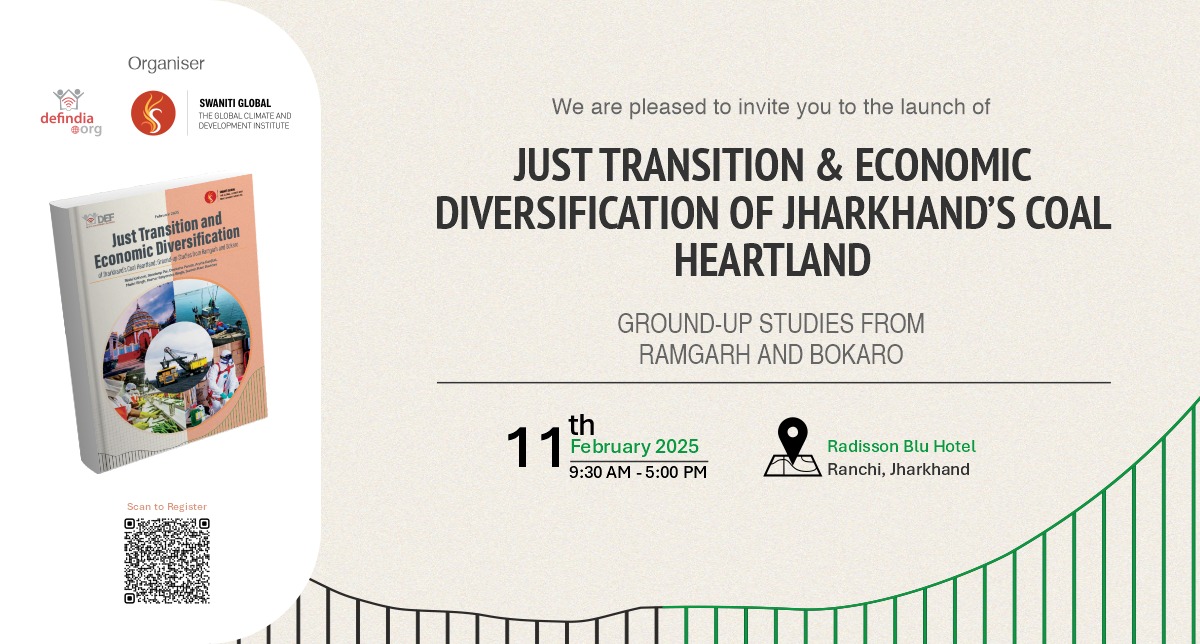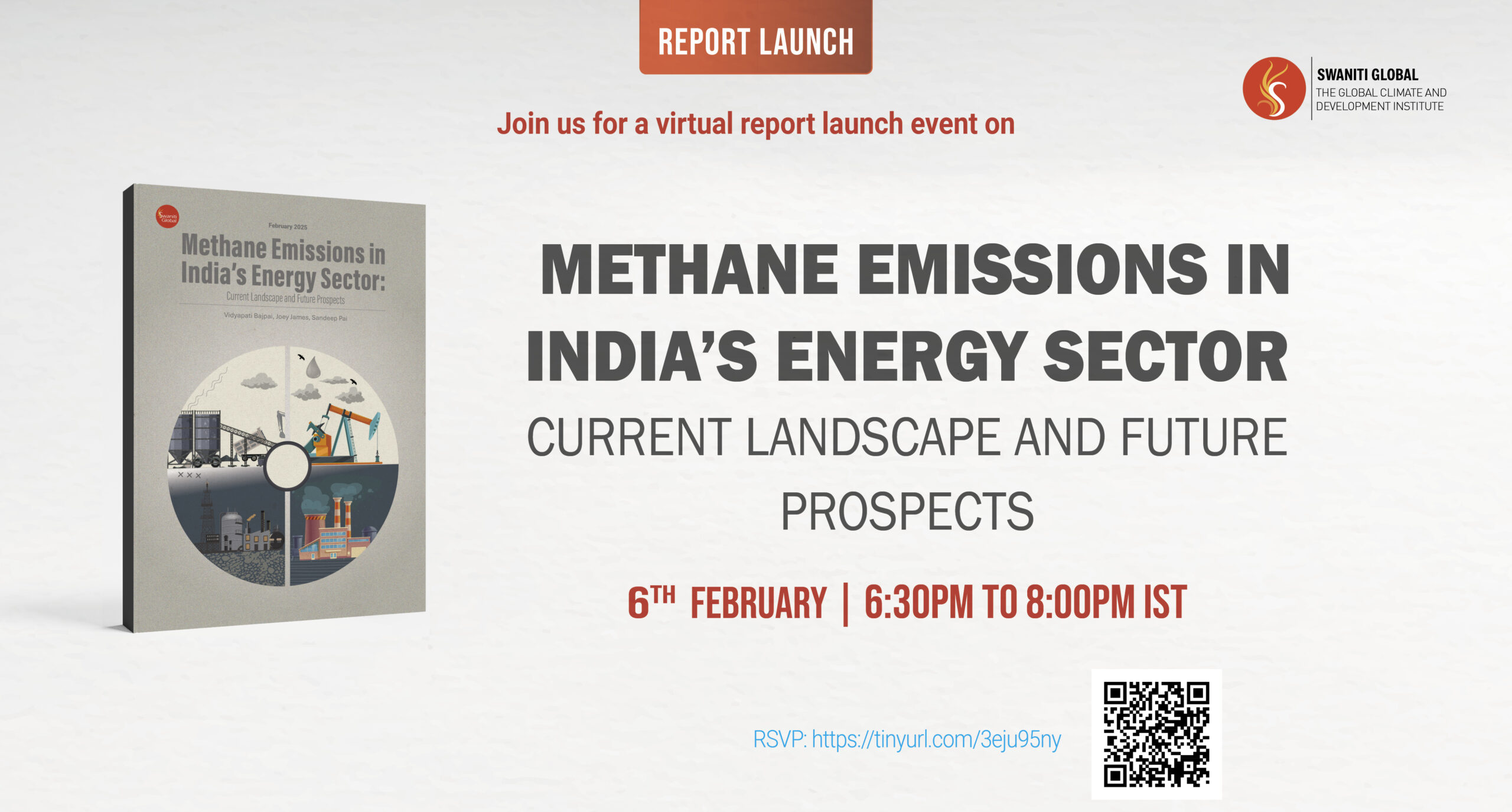Upcoming Events @ Swaniti
REPORT RELEASE
We are pleased to invite you to the launch of
Methane Emissions in India’s Energy Sector: Current Landscape and Future Prospects
Join us for this insightful event to hear from experts, gain a deeper understanding of the report’s findings, and engage in a discussion on how India can lead the way in methane mitigation to combat global climate change effectively.
Date: February 6th, 2025 (Thursday)
Time: 6:30 PM – 8:00 PM IST
Location: Virtual event on Zoom
About the Event
Methane is one of the most powerful greenhouse gases, with a warming potential over 80 times higher than that of carbon dioxide over a two-decade period. Reducing methane emissions is widely recognized as one of the fastest and most effective ways to slow global warming.
India, as a leading energy producer and consumer, has a unique opportunity to address methane emissions in its energy sector. To support this critical effort, Swaniti Global’s Global Climate and Development Institute is launching a comprehensive report: Methane Emissions in India’s Energy Sector: Current Landscape and Future Prospects.
This report offers an in-depth look at India’s methane emissions challenges, highlights opportunities for mitigation, and provides actionable strategies to address policy, measurement, and reporting gaps. It aims to empower key stakeholders including policymakers, energy companies, technology providers, and intergovernmental organizations with clear and practical solutions for meaningful impact.

REPORT RELEASE
We are pleased to invite you to the launch of
Just Transition & Economic Diversification of Jharkhand’s Coal Heartland:
Ground-up Studies from Ramgarh and Bokaro
Date: 11th February 2025
Lunch: 9:30 AM – 5:00 PM (IST)
Time: 2:00 PM to 5:00 PM IST
Location: Ranchi, Jharkhand
About the Event
As the world is moving towards a net zero future, a prerequisite for meeting the 1.5-degree climate target, coal phase-down has become inevitable. As India aims to achieve net zero by 2070, and states like Jharkhand, with its coal-rich legacy, play a crucial role in this transition. Jharkhand produces 17% of India’s total coal and hosts 108 coal mines, the highest in the country. Districts like Dhanbad, Ramgarh, and Bokaro contribute significantly to this output, and alongside coal production, these regions house coal-dependent industries, thermal power plants, and mining-based livelihoods. The heavy reliance of communities and local economies on coal calls for an urgent need for strategic planning and diversification. With Jharkhand establishing a Just Transition Task Force in 2022, the state is taking proactive steps toward a sustainable and equitable transition. Developing long-term strategies that address both industrial and household coal dependencies is essential to ensure a smooth and inclusive shift toward a low-carbon future.
To contribute to understanding Jharkhand’s net zero future and just transition plans, we conducted a first-of-its-kind mixed-method study including a household survey, an enterprise survey, multiple interviews and policy analysis of two of the highest coal-producing districts in Jharkhand: Ramgarh and Bokaro. Our study aims to discuss coal dependency and give sector-specific recommendations for economic diversification in both these districts.
Our research identifies that while many households continue to see coal as a preferred sector for their future employment, there is significant interest in transitioning to alternative industries, including tourism, food processing, and others to support the transition away from coal. As Jharkhand moves forward with its net-zero plans, insights gained from analyzing coal dependencies and exploring diversification opportunities in these districts will be crucial in shaping effective policies and strategies. By identifying promising alternative sectors and understanding local community needs, we can promote sustainable economic diversification that not only reduces reliance on coal but also enhances the resilience and long-term prosperity of these communities.
